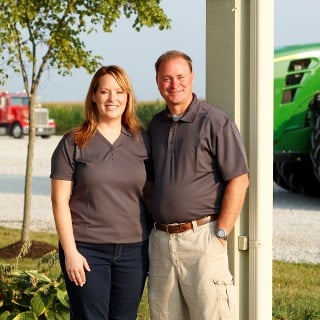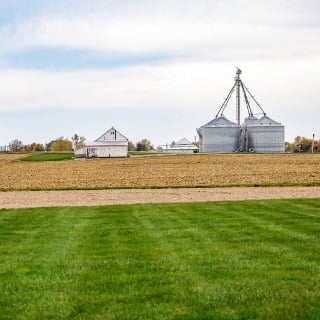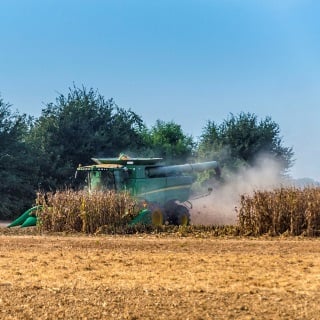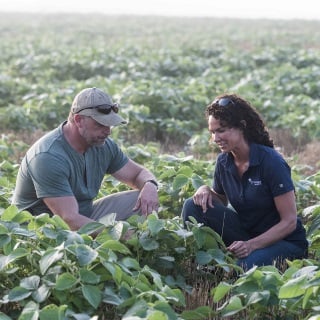Think back to high school. How often did you think, “Why am I learning this? When will I ever use this in real life?” A new state-designated, public STEM school in Ohio wants to be sure its students are never left to wonder about how their classroom material applies to their future.
Global Impact STEM Academy in Springfield, Ohio, is just four years old, but already expects 600 students in grades 7 through 12 next year. While STEM stands for “science, technology, engineering and mathematics,” Global Impact has added an “A” to its curriculum: agriculture. It is the first ag-focused STEM school in Ohio and one of just a few in the country. In addition to core subjects, students take classes in food science, bioscience, energy and the environment. Every single Global Impact student is a member of FFA.
Lane Harbage is 14 and in the 9th grade at Global Impact. He says that he had expected to spend his high school days sitting in rows while teachers lectured. But that’s not what he found at all. In Global Impact’s project-based curriculum, students work independently and in groups to complete assignments. Classes are structured to connect across subject areas.
“Every day in science class, you’re doing a lab, but that connects to something you’re doing in English, and that connects to history,” he says. “The teachers are all outgoing and energetic, and so are the students. Everyone wants to learn something new.”
Asked about his favorite class, Lane gives a remarkable answer: “They’re all meaningful to me,” he says. “Everything they teach me, I can relate that to how I’m going to use that in life.”
Josh Jennings, head of school at Global Impact, says that applicability to the real world is the focus of everything he and his staff do.
“In every unit and every topic, students see the application of what they doing immediately,” he says.
Sometimes they get to see this application through hands-on service projects in the community. As part of his language arts curriculum, Lane and his classmates are working with a nonprofit called Story Chain, that works with incarcerated mothers. They record the mothers reading a book out loud, then take the recording to a library, where the child and his or her caregiver can pick it up and request a new book.
For another class, they entered a worldwide social venture capitalism competition. Lane’s group proposed a project that would help youth who are hospitalized connect with friends and family through a special website.
Lane was active in 4-H and FFA before he came to Global Impact. He shows pigs, turkeys and ducks and has earned his Discovery Degree from FFA. He was drawn to the school because he wants a career in agriculture business. But not all students are like Lane.
“The majority of students don’t come here because they have a connection to ag, or even an interest in agriculture,” Jennings says. Instead, they come for the school’s teaching style and the STEM education.
“What we found is that we’re opening up a world that these students didn’t know existed and opportunities in a work force in agriculture that is vast and growing,” Jennings says. “Maybe they didn’t even know food scientist was a career choice. And they’re almost guaranteed a job.”
These students also learn, like Lane, that succeeding in a school like Global Impact will teach them personal responsibility. There are no school bells. Students are expected to get themselves where they need to go and to find their own way to complete their projects in the time given.
Lane’s mother, Jennifer Harbage, says Lane has learned a whole new sense of responsibility. “He knows what he has to do and that he can make it happen,” she says, “I feel like that’s a weight off my shoulders.”
Through its Supporting Rural Communities and Agriculture Community Engagement Fund, Farm Credit Mid-America supported Global Impact STEM Academy in its move to a larger building to accommodate its growing student body. Jennings walked Farm Credit representatives through the building while renovations were still in progress. “Hammers were still swinging,” as Jennings put it, and Farm Credit offered their support.
“When you see the names of our partners on our walls, it’s important to see a name like Farm Credit; an organization outside of secondary education,” Jennings says. “It’s not just a financial investment. It’s an endorsement of what we do.”






